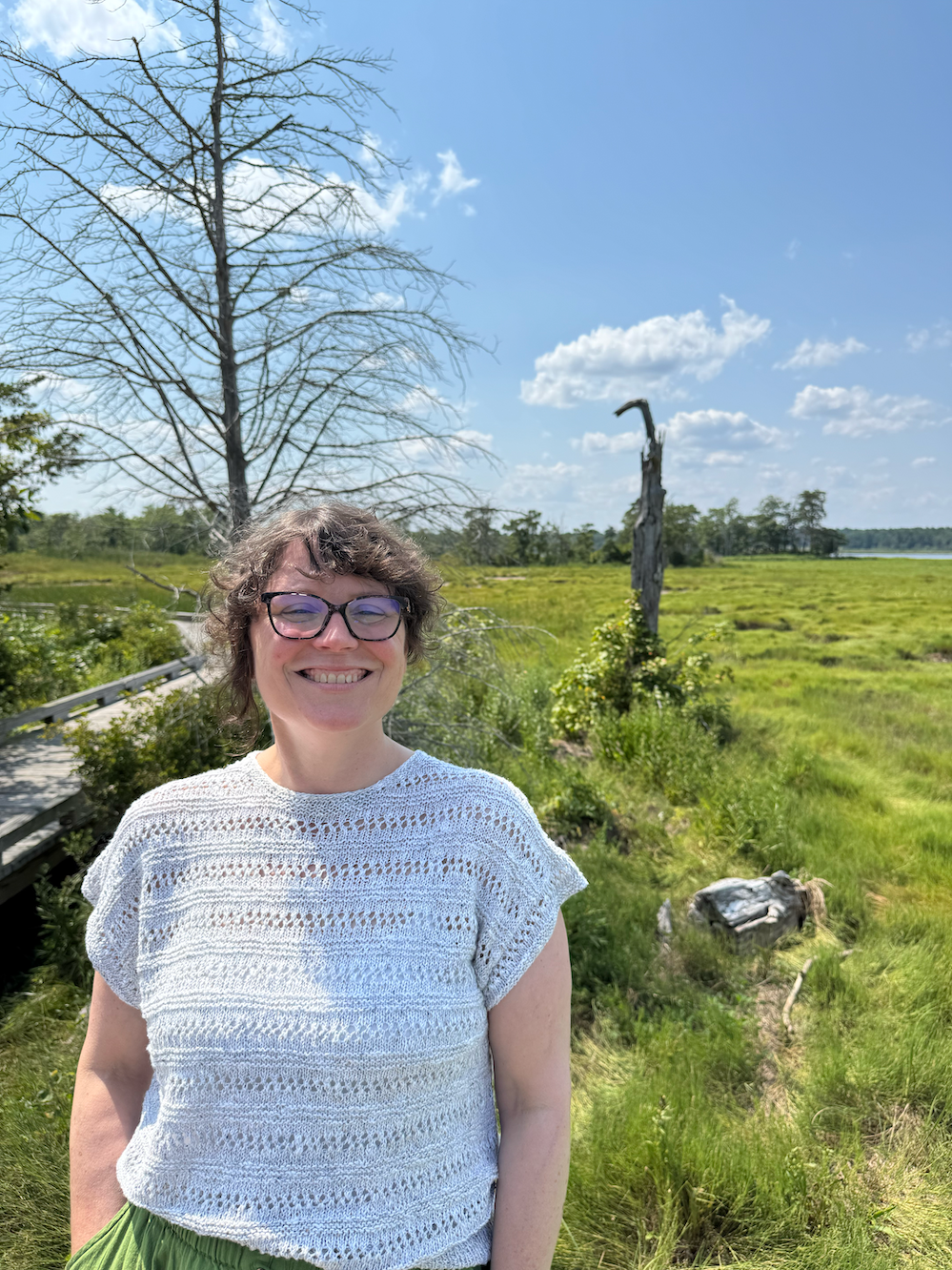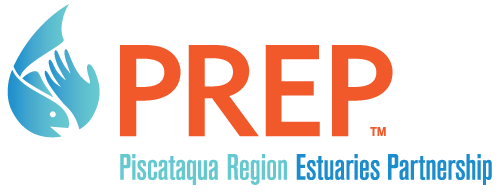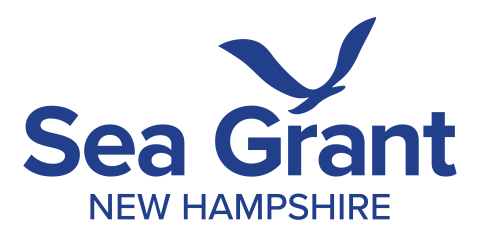Climate Impact Grants
Need funding to tackle extreme heat and/or flooding in the Great Bay Watershed? Climate Impact Grants are a new grant program from PREP, offered through our Adapting Together initiative.
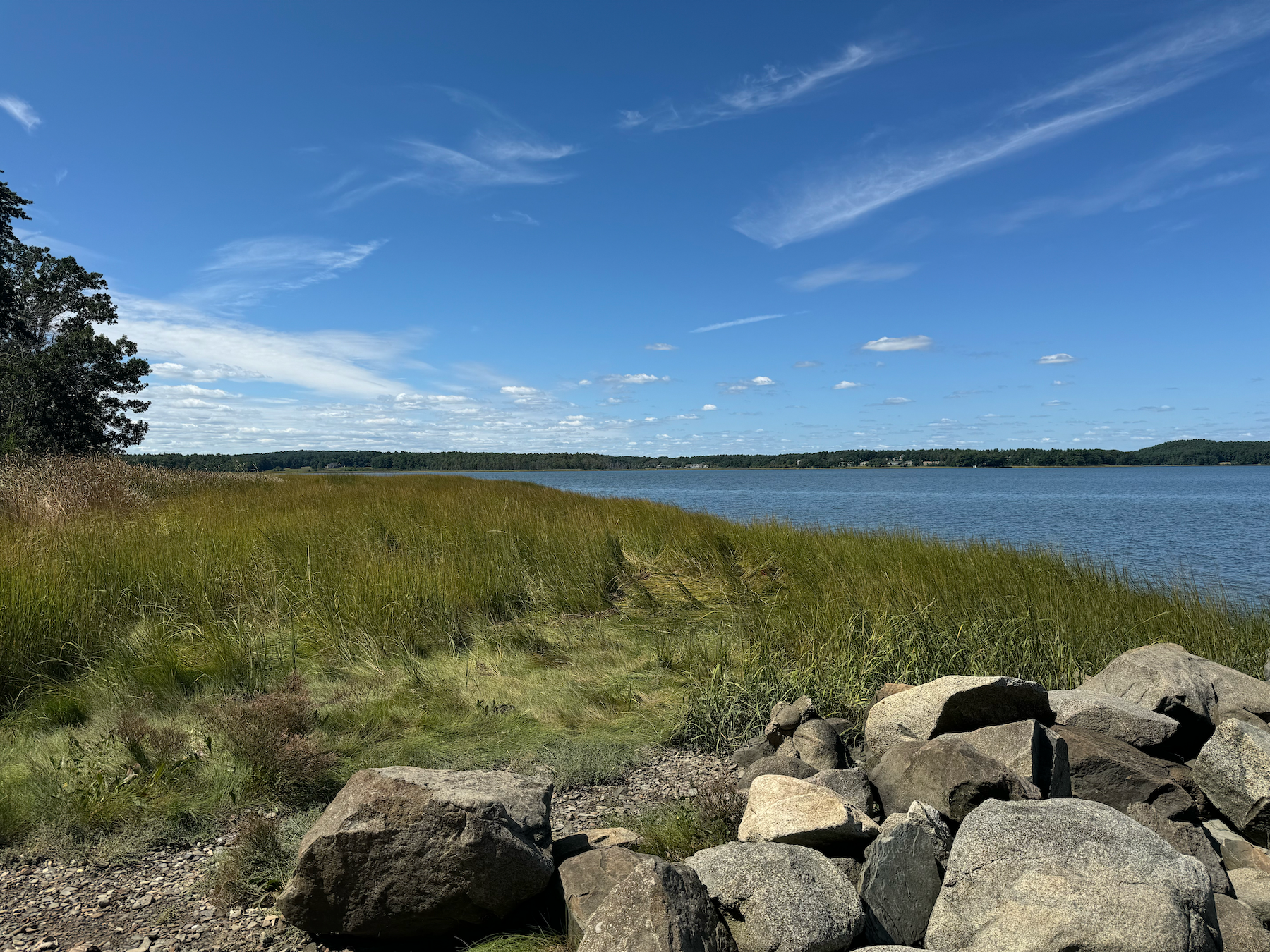
Climate Impact Grants provide up to $25,000 for community-led projects that address the impacts of extreme heat and/or flooding in the Great Bay Watershed. Projects must emphasize local action and strong community engagement to build climate resilience where it’s needed most.
A total of $125,000 is available in 2025 to fund multiple projects that turn smart ideas into real solutions.
If our Project Builder program helps shape and strengthen your idea, Climate Impact Grants are about putting that idea into motion. These two programs are designed to work hand-in-hand: they share the same eligibility criteria, themes, and focus on climate solutions at the local level.
Whether you're developing heat action plans, launching a community cooling campaign, tackling heat islands, piloting nature-based flood solutions, planting native vegetation to reduce both heat and flooding, or testing out another creative idea—we want to hear from you.
The October 31, 2025 deadline for Climate Impact Grant applications has now passed. Stay in the loop about future funding opportunities by subscribing to our quarterly newsletter.
Application materials can be downloaded using the blue buttons to the right. When ready apply, send all the materials outlined in the Request for Proposals as PDFs:
- Proposal Narrative, Application Authorization, and Signature Form
- Proposal Budget & Budget Narrative
- Proposal Tasks, Timeline, & Deliverables
Climate Impact Grants are funded by the New Hampshire Charitable Foundation’s Great Bay 2030 initiative. In 2025, the program is available to communities within the Great Bay Watershed, in alignment with the vision of a healthy and resilient Great Bay Estuary.
Looking ahead to 2026, PREP hopes to expand Climate Impact Grants to the entire Piscataqua Region Watershed, including upper watershed towns and Maine communities.
2025 Grant Theme & Criteria
The 2025 Climate Impact Grant theme is extreme heat and/or flooding.
All projects must address the theme.
To be eligible, proposals must align with the following criteria:

Image by Emily Lord
✔ Climate Impact Grant Projects must:
-
Address or consider flooding and/or extreme heat in the Great Bay Watershed. This includes tidal, riverine, or stormwater (i.e., rainwater that has hit the ground) related flooding, as well as urban heat impacts or rising temperatures affecting people or ecosystems.
-
Include a strong community engagement component. Projects must actively involve or benefit local communities—raising awareness, building capacity, or encouraging participation.
- Promote well-being of people and the environment.
- Focus on public benefits and/or improvements to public spaces.
✘ Climate Impact Grant Projects Cannot:
-
Focus solely on private property improvements.
-
Be monitoring-only efforts.
-
Primarily request equipment or supplies.
-
Propose large-scale infrastructure projects, such as dam removals or culvert replacements.
- Applicants must be one of the following:
- A fiscal agent, which is either a 501(c)(3) nonprofit organization or a government, institution, or coalition which can serve as a fiscal agent.
- An adult individual (18 years+) or group partnering with a fiscal agent as described above.
- Project proposals must take place within the Great Bay Watershed. Some eligible communities are entirely within the watershed, while others are only partially included. A project may occur anywhere in the Great Bay Watershed town if benefits or activities also occur within the watershed boundary. Projects must be located within at least one of the following New Hampshire communities: Barrington, Brentwood, Brookfield, Candia, Chester, Danville, Deerfield, Dover, Durham, East Kingston, Epping, Exeter, Farmington, Fremont, Greenland, Hampton Falls, Kensington, Kingston, Lee, Madbury, Middleton, Milton, New Castle, New Durham, Newfields, Newington, Newmarket, North Hampton, Northwood, Nottingham, Portsmouth, Raymond, Rochester, Rollinsford, Sandown, Somersworth, Strafford, Stratham, and Wakefield.
- Projects must address the current year's climate theme and adhere to theme criteria (above). In 2025, this theme is flooding and/or extreme heat in the Great Bay Watershed.
- One application per community and/or organization.
Have eligibility questions? Visit our Frequently Asked Questions or contact Annie Cox: anne.cox@unh.edu
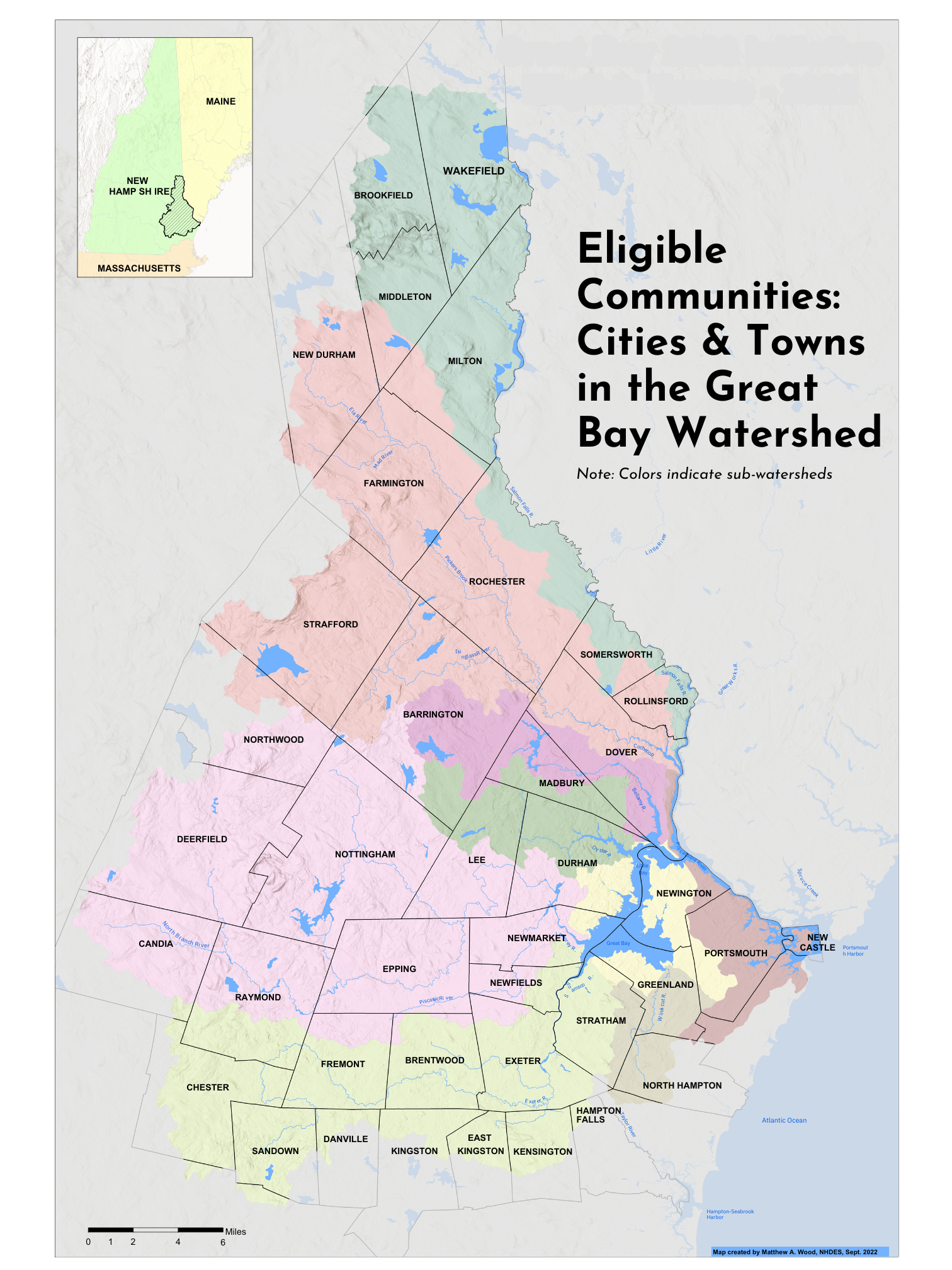
Projects must be located within the watershed portion of at least one of the following New Hampshire communities: Barrington, Brentwood, Brookfield, Candia, Chester, Danville, Deerfield, Dover, Durham, East Kingston, Epping, Exeter, Farmington, Fremont, Greenland, Hampton Falls, Kensington, Kingston, Lee, Madbury, Middleton, Milton, New Castle, New Durham, Newfields, Newington, Newmarket, North Hampton, Northwood, Nottingham, Portsmouth, Raymond, Rochester, Rollinsford, Sandown, Somersworth, Strafford, Stratham, and Wakefield.
Annie Cox, Climate Impact Grant Program Manager
At the heart of PREP’s Climate Impact Grants is Annie Cox. Annie brings a flexible, people-first approach to this work—because for her, climate resilience starts with human connection.
Annie can be contacted at Anne.Cox@unh.edu or (603) 862-0219
“This grant program is about more than just funding projects,” Annie says. “It’s about supporting local leadership, building relationships across our watershed, and creating momentum where it’s needed most.”
Annie is especially passionate about these grants and sees them as a way to connect with new partners, empower local communities, and support bold ideas that might otherwise go unfunded. Through this program, Annie and PREP hope to spark a network—not just of grantees, but of neighbors—who can learn from each other, grow their capacity, and help shape a more connected, climate-ready future across the Great Bay watershed.
This timeline is updated when a new funding cycle is released.
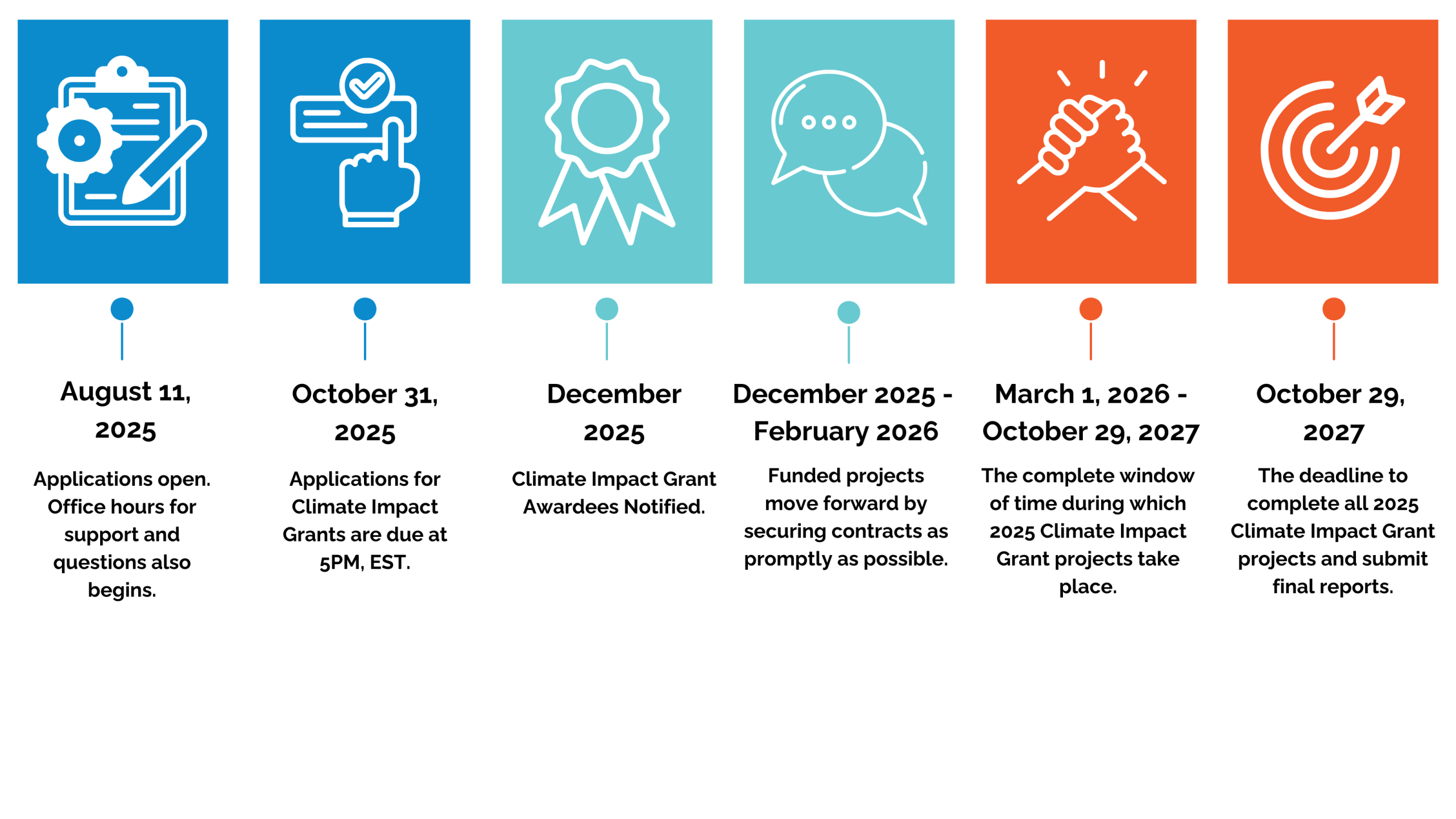
Project Builder
If you're interested in Climate Impact Grants, but aren't ready or want more support in how to pull a grant proposal together, check out our Project Builder Program! Project Builder is a program designed to help you develop your grant proposal ideas, find partners, and provide professional development support. Participants in the Project Builder program are eligible and encouraged to apply for Climate Impact Grants.

Image by Scott Ripley
Frequently Asked Questions
Don't see your question below? Please contact Annie Cox! 📧 Anne.Cox@unh.edu ☎️ (603) 862-0219
More about Adapting Together
Adapting Together's Project Builder and Climate Impact Grants are funded by the NH Charitable Foundation’s Great Bay 2030 initiative. Partners from the Piscataqua Region Estuaries Partnership (PREP), New Hampshire Sea Grant, and New Hampshire Coastal Adaptation Workgroup lead or support both programs and provide direct assistance.

About this Funding
Climate Impact Grants are funded by the New Hampshire Charitable Foundation’s Great Bay 2030 initiative. The vision of Great Bay 2030 is to promote a healthy Great Bay Estuary, distinguished by clean water, accessible lands for recreation and education, habitat for fish and wildlife, climate resilience, and engaged communities committed to supporting the watershed for generations to come. Learn more about Great Bay 2030.

